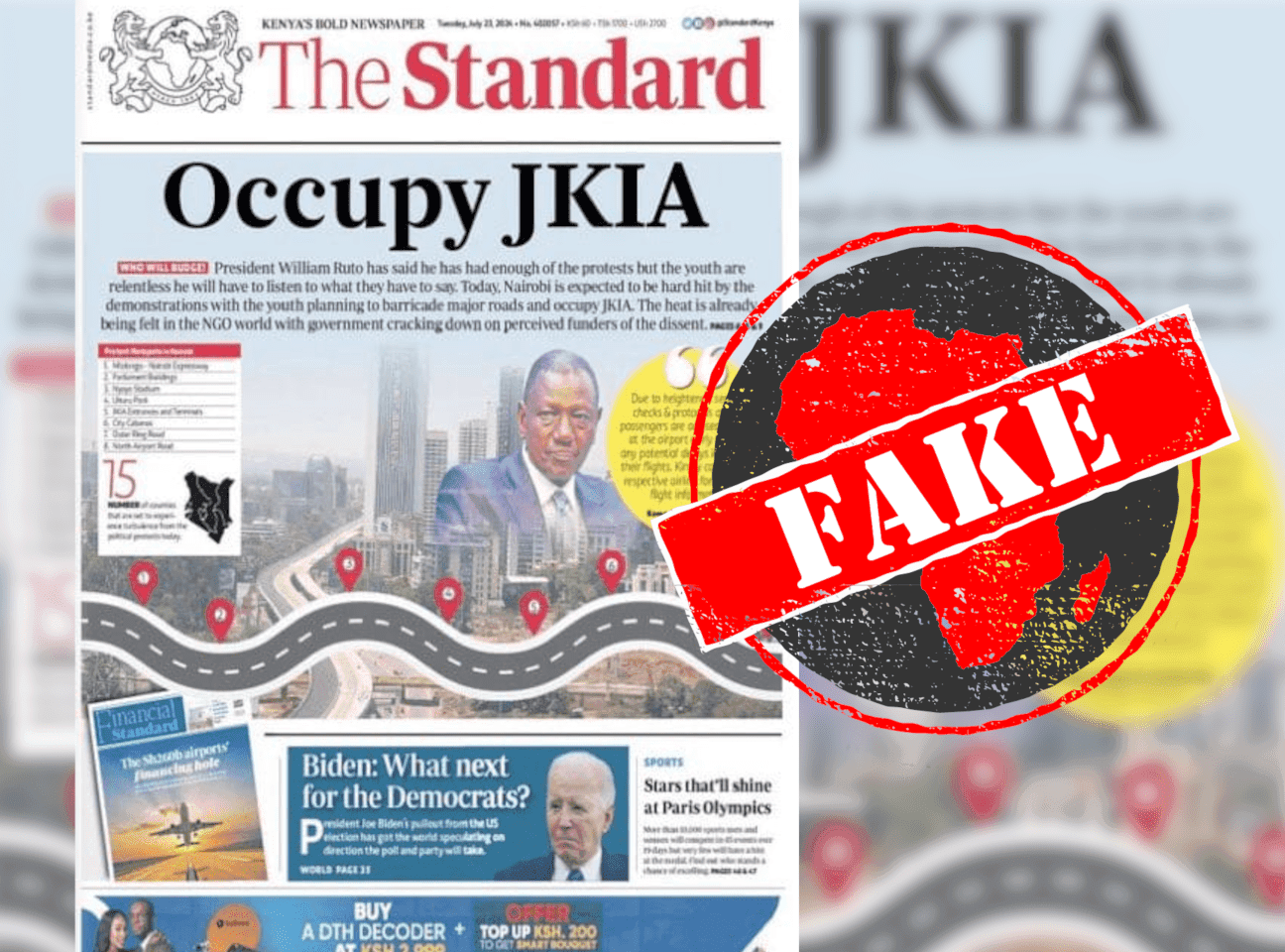We're loading the full news article for you. This includes the article content, images, author information, and related articles.
A perceived softening of The Standard newspaper's editorial stance towards the Kenya Kwanza administration has ignited discussions among politicians and media observers, raising questions about media independence and political influence in Kenya.

Narok, Kenya – The Standard newspaper, a prominent daily known for its critical reporting, is facing scrutiny after government-allied politicians lauded a perceived shift in its editorial approach. This development, which some are calling a "Saul-to-Paul moment," has sparked a wider debate on media freedom and potential political influence in Kenya.
Narok County Senator Ledama Ole Kina and Homa Bay Town MP Peter Kaluma are among the politicians who have publicly suggested that The Standard has softened its critical coverage of President William Ruto and the Kenya Kwanza administration in recent issues. Senator Ole Kina remarked, "Was waiting to read The Standard headlines today… and wow, looks like the Damascus light got to them—total Saul-to-Paul moment."
This comes days after Gideon Moi, the KANU party leader and former Baringo Senator, whose family has significant ownership in The Standard Group, met with President William Ruto. The meeting, which took place on Wednesday, October 8, 2025, at State House, Nairobi, and was followed by a visit by President Ruto to Moi's Kabarak home on Thursday, October 9, 2025, saw Moi withdraw his candidature from the upcoming Baringo senatorial by-election. This decision has been widely interpreted as a political truce between the two leaders, whose rivalry has shaped Rift Valley politics for over a decade.
Media ownership in Kenya has historically been concentrated among politically connected entities and influential families, raising concerns about editorial independence. The Standard Group, which publishes The Standard newspaper, KTN, KTN News, and Radio Maisha, is largely owned by the Moi family and their associates. This concentration of media ownership has often led to perceptions that media outlets can be influenced by political and corporate interests.
Kenya's media landscape, while considered vibrant compared to others in the region, has faced persistent challenges to press freedom. Despite constitutional safeguards and legislation like the Media Council Act, which establishes the Media Council of Kenya to regulate the industry and protect journalists, instances of harassment, intimidation, and economic pressure on media houses are not uncommon.
The Kenyan Constitution, specifically Article 34, guarantees freedom of the media, prohibiting state interference and penalisation for expressed opinions. The Media Council of Kenya is mandated to promote ethical standards, safeguard journalistic independence, and ensure adherence to professional norms. However, the implementation of these safeguards has been challenged by various factors, including political hostility and economic downturns that affect media sustainability.
Recent years have seen a decline in Kenya's press freedom ranking. In 2023, Kenya fell to 116th out of 180 countries in the World Press Freedom Index, a significant drop from its 69th position in 2022. This decline has been attributed to increased hostility, police brutality against journalists during protests, and overt antagonism from the government. Government advertising directives, such as channelling advertisements solely through the state-run Kenya Broadcasting Corporation, have also been criticised as attempts to stifle dissenting voices and control the public narrative.
Politicians allied with the Kenya Kwanza government have consistently defended President Ruto's administration, asserting that it is on track to implement its campaign pledges. Conversely, opposition figures and media advocates have voiced concerns about the shrinking space for independent journalism. The Media Council of Kenya has called for thorough investigations into violations against journalists, highlighting the lack of institutional structures to protect them.
A perceived shift in editorial independence at a major media house like The Standard could have significant implications for public discourse and democratic accountability in Kenya. It risks narrowing the diversity of viewpoints available to the public, potentially leading to a less informed citizenry. In an economic downturn, media houses are particularly vulnerable to political pressure, which can lead to self-censorship and a pullback from critical reporting.
While politicians have commented on The Standard's headlines, the extent to which any perceived editorial shift is a direct result of the meeting between Gideon Moi and President Ruto remains a subject of speculation. The Standard Group has not issued an official statement regarding its editorial policy in light of these political developments. The long-term impact of the political truce between Moi and Ruto on media operations and editorial independence at The Standard Group is yet to be seen.
Observers will be closely watching The Standard's future editorial content for any sustained changes in its coverage of the government. The broader implications for media freedom in Kenya, particularly concerning the interplay between media ownership, political affiliations, and editorial independence, will also remain a key area of focus. The Media Council of Kenya's ongoing efforts to safeguard journalistic independence will be crucial in this evolving landscape.
Keep the conversation in one place—threads here stay linked to the story and in the forums.
Sign in to start a discussion
Start a conversation about this story and keep it linked here.
Other hot threads
E-sports and Gaming Community in Kenya
Active 9 months ago
The Role of Technology in Modern Agriculture (AgriTech)
Active 9 months ago
Popular Recreational Activities Across Counties
Active 9 months ago
Investing in Youth Sports Development Programs
Active 9 months ago
Key figures and persons of interest featured in this article